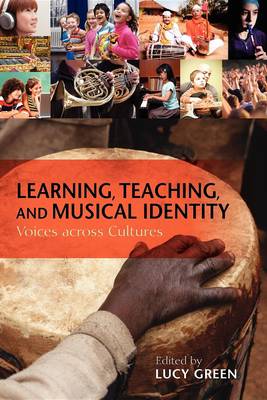
- Afhalen na 1 uur in een winkel met voorraad
- Gratis thuislevering in België vanaf € 30
- Ruim aanbod met 7 miljoen producten
- Afhalen na 1 uur in een winkel met voorraad
- Gratis thuislevering in België vanaf € 30
- Ruim aanbod met 7 miljoen producten
Omschrijving
Musical identity raises complex, multifarious, and fascinating questions. Discussions in this new study consider how individuals construct their musical identities in relation to their experiences of formal and informal music teaching and learning. Each chapter features a different case study situated in a specific national or local socio-musical context, spanning 20 regions across the world. Subjects range from Ghanaian or Balinese villagers, festival-goers in Lapland, and children in a South African township to North American and British students, adults and children in a Cretan brass band, and Gujerati barbers in the Indian diaspora.
Specificaties
Betrokkenen
- Auteur(s):
- Uitgeverij:
Inhoud
- Aantal bladzijden:
- 330
- Taal:
- Engels
- Reeks:
Eigenschappen
- Productcode (EAN):
- 9780253222930
- Verschijningsdatum:
- 30/03/2011
- Uitvoering:
- Paperback
- Formaat:
- Trade paperback (VS)
- Afmetingen:
- 152 mm x 229 mm
- Gewicht:
- 544 g

Alleen bij Standaard Boekhandel
Beoordelingen
We publiceren alleen reviews die voldoen aan de voorwaarden voor reviews. Bekijk onze voorwaarden voor reviews.







